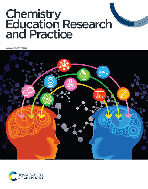Advancing students’ scientific inquiry performance in chemistry through reading and evaluative reflection
Abstract
Inspired by existing literature indicating that reading literacy is significantly associated with scientific reasoning and chemistry conceptual understanding, this quasi-experimental study explored the effectiveness of reflective reading of scientific articles on student inquiry performance. A total of 134 10th graders from southern Taiwan were divided into two Experimental Groups (EG) and a Comparison Group (CG). Both EG1 and EG2 students engaged in reading and discussing scientific articles and planning their own experiments. Evaluative reflection on their peers’ experimental designs was emphasized for EG1 students while the recognition of variables in designing experimental procedures was emphasized for EG2 students. The CG students learned how to read and understand scientific articles without direct emphasis on their inquiry practices. The results revealed that EG students’ scientific inquiry performances of forming researchable questions and planning experimental procedures could be effectively improved by reading and reflecting on experimental design. Further analysis revealed that students with higher reflection ability performed better than those with lower reflection ability in the competency of experimental design applied to other contexts. Given that using reading in chemistry teaching is scarce, this study's pedagogical approach of reading with a focus on evaluative reflection provides an alternative teaching strategy for those teachers who do not have enough time or laboratory equipment to provide their students the opportunity of doing hands-on experiments.


 Please wait while we load your content...
Please wait while we load your content...